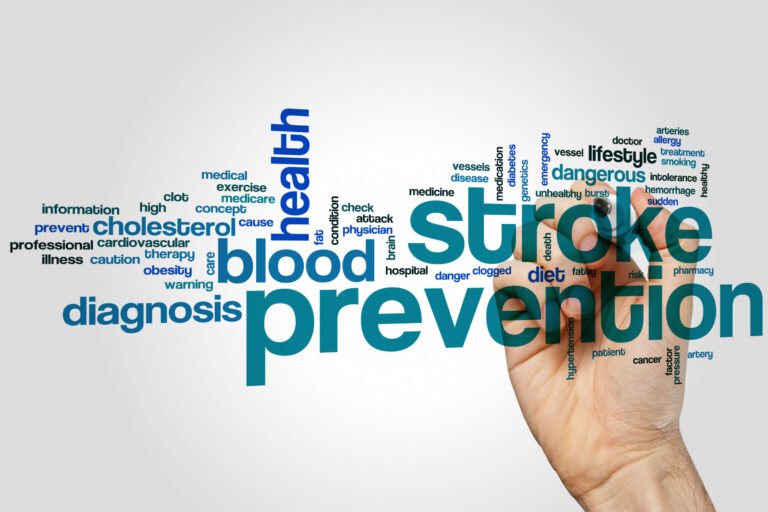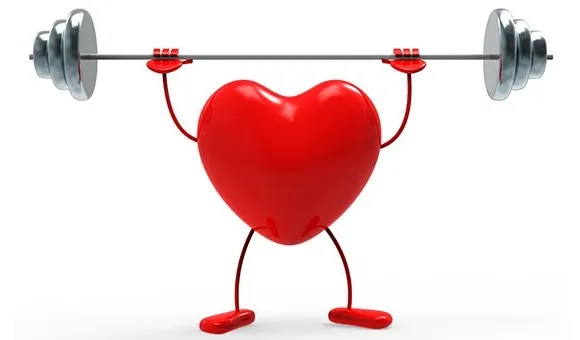Human Liver: The Unsung Hero of Your Body
Human Liver works silently behind the scenes, acting as your body’s personal detox powerhouse. It processes every nutrient, medication, and toxin that enters your system. But like any hard working organ, it can become overwhelmed, leading to liver disease or health issues. When liver function is compromised, everything from metabolism to digestion is affected. The good news? There are simple lifestyle changes you can make to keep your liver in peak condition. Here’s how you can recognize common liver problems and maintain a healthy liver for life.
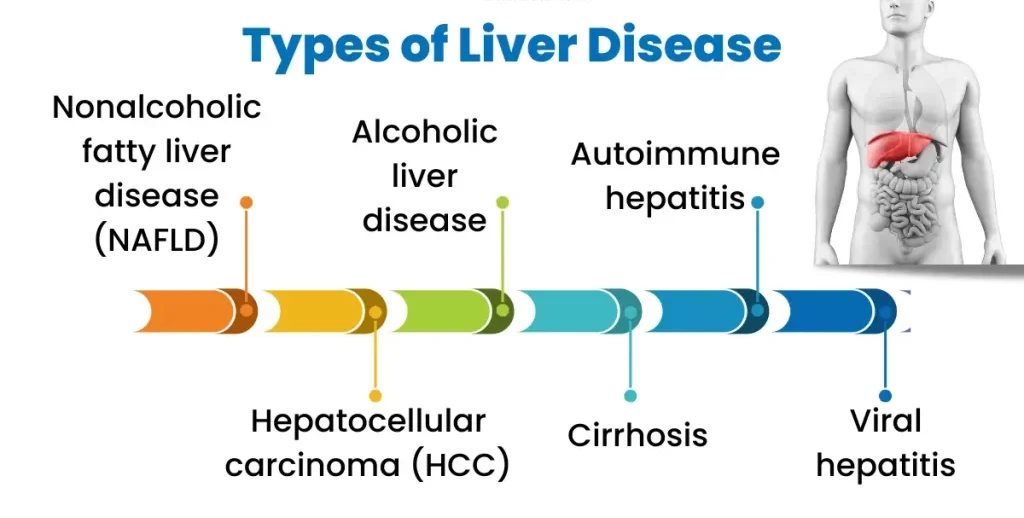
Common Liver Disease/Issues: What You Need to Know
- Fatty Liver Disease (Hepatic Steatosis)
- Non-Alcoholic Fatty Liver Disease (NAFLD): This occurs when fat builds up in the liver due to factors like obesity, insulin resistance, and high cholesterol. Dr. Anna Mae Diehl, a professor of hepatology at Duke University, explains, “NAFLD is now the most common liver disease worldwide, largely due to the rise in obesity and diabetes. The condition can progress to liver inflammation and scarring if left unchecked” (source).
- Alcoholic Fatty Liver Disease (AFLD): As the name suggests, AFLD is caused by excessive alcohol intake. If drinking continues, it can progress to more severe liver issues like cirrhosis.
- Hepatitis
- Hepatitis refers to inflammation of the liver and is most commonly caused by viral infections (Hepatitis A, B, or C). Chronic hepatitis, especially types B and C, can lead to long-term liver damage. According to the World Health Organization, “Over 296 million people worldwide are living with chronic hepatitis B, and without treatment, they are at a higher risk of developing liver cancer or cirrhosis.”
- Cirrhosis
- Cirrhosis occurs when scar tissue replaces healthy liver cells, usually as a result of long-term damage from alcohol abuse, chronic hepatitis, or fatty liver disease. Dr. William Carey, a hepatologist at Cleveland Clinic, notes that “Cirrhosis is an irreversible condition, but if caught early, lifestyle changes and medications can slow its progression.”
- Liver Cancer
- The most common form of liver cancer is hepatocellular carcinoma (HCC), which is often linked to chronic liver diseases such as cirrhosis or hepatitis. Early detection is crucial since liver cancer can develop without noticeable symptoms.
- Liver Failure
- When the liver is unable to perform its essential functions due to significant damage, liver failure occurs. This can be a result of acute or chronic conditions, including poisoning, hepatitis, or prolonged alcohol abuse.
Signs Your Liver Might Be Struggling
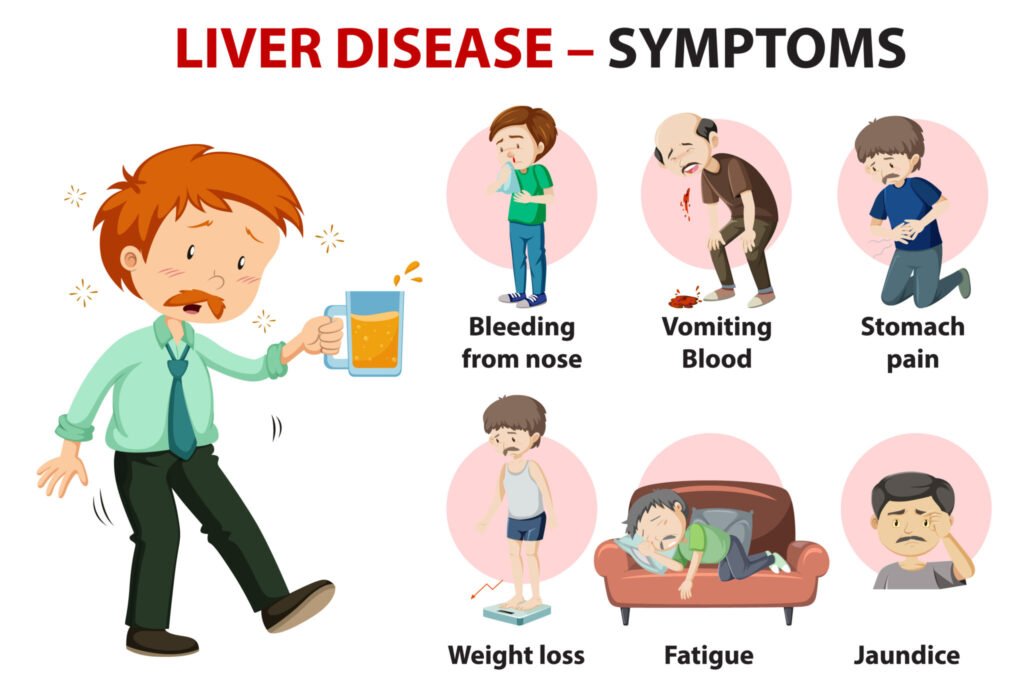
The liver can be quiet about its issues until things get serious. Here are common signs that something might be wrong:
- Fatigue and Weakness: You feel constantly tired, even after rest.
- Jaundice: Yellowing of the skin or eyes due to a buildup of bilirubin.
- Abdominal Pain and Swelling: Persistent discomfort in the upper right side of your abdomen.
- Dark Urine, Pale Stool: These can be signs of liver dysfunction.
- Nausea and Vomiting: If the liver struggles to detoxify the body, it can lead to digestive issues.
If you notice any of these symptoms, it’s essential to seek medical advice. Liver function tests (LFTs) can help diagnose any underlying issues early.
How to Keep Your Liver in Top Shape
Liver health is directly impacted by the choices you make every day. Here are simple, practical ways to take care of your liver:
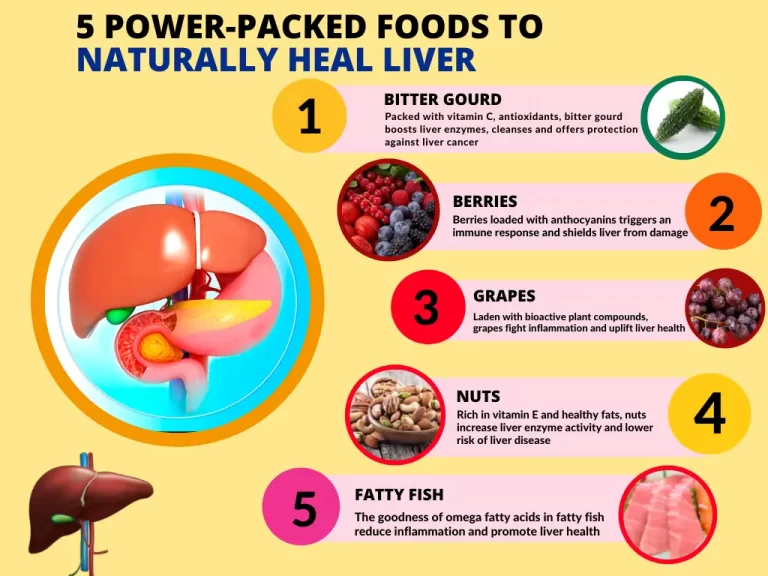
1. Eat Liver-Friendly Foods
Your diet plays a huge role in liver health. According to Dr. Joel Levine, a gastroenterologist, “The best thing you can do for your liver is to eat a well-balanced diet rich in vegetables, whole grains, lean proteins, and healthy fats” (source).
- Antioxidant-Rich Foods: Include fruits like berries, vegetables like spinach, and cruciferous vegetables such as broccoli and cauliflower. These help reduce liver inflammation.
- Healthy Fats: Omega-3 fatty acids found in salmon, flaxseeds, and walnuts can help reduce fat buildup in the liver.
- Minimize Processed Foods and Sugary Drinks: Refined sugars and unhealthy fats can overload the liver, leading to fat accumulation.
- Hydrate with Water and Herbal Teas: Drinking plenty of water supports the liver in detoxifying your system.
2. Limit Alcohol Intake
- Moderate Your Drinking: Excessive alcohol consumption is one of the biggest contributors to liver disease. The CDC recommends limiting alcohol to one drink per day for women and two for men. If you’re already experiencing liver issues, avoiding alcohol altogether is crucial.
- Dr. Samuel Lee, a liver specialist at the University of Calgary, advises, “Even casual drinking can lead to long-term damage over time. Your liver works to filter out toxins, including alcohol, but it can only handle so much.”
3. Get Moving
- Physical activity helps manage weight, which is vital in preventing conditions like NAFLD. According to Dr. Miriam Vos, a pediatric liver specialist, “Regular exercise not only helps prevent fat buildup but can also reverse early liver damage caused by NAFLD.”
- Aim for at least 30 minutes of moderate exercise, such as walking, swimming, or yoga, most days of the week. It doesn’t have to be strenuous—just consistent!
4. Be Mindful of Medications and Supplements
- Certain medications and supplements can be toxic to the liver, especially when taken in high doses. Dr. Steven Flamm, a liver expert at Northwestern Memorial Hospital, explains, “Many people are unaware that everyday medications, like acetaminophen, can be dangerous when used excessively. Always follow dosing instructions and consult with your doctor.”
- Herbal supplements may also cause liver damage if used improperly. Be cautious and consult a healthcare provider before trying new supplements.
5. Vaccinate and Protect Yourself
- Get Vaccinated Against Hepatitis A and B: Vaccination is a key preventive measure to avoid liver infections.
- Avoid risky behaviors, like unprotected sex or sharing needles, which increase the risk of hepatitis infections.
6. Limit Exposure to Toxins
- Minimize Chemical Exposure: Household chemicals, pesticides, and even cigarette smoke contain harmful toxins that can damage your liver. Opt for natural cleaning products, and always use protective gear if you work in environments with hazardous materials.
Conclusion: Take Charge of Your Liver Health
Your liver works hard to keep you healthy—it’s time to return the favor. By making small but meaningful lifestyle changes, like eating a nutrient-rich diet, staying active, and being mindful of alcohol and medications, you can support your liver for life. As Dr. Levin advises, “Prevention is the best treatment when it comes to liver disease. The earlier you start taking care of your liver, the better your chances of avoiding long-term damage.”
So, what’s your first step today? Whether it’s swapping sugary drinks for water or committing to regular exercise, every positive choice you make counts toward a healthier liver. Take action now—your liver will thank you!
Resources and Further Reading:
- CDC Guidelines on Alcohol Consumption
- World Health Organization: Hepatitis Fact Sheet
- Cleveland Clinic: Cirrhosis Overview
- American Liver Foundation: Exercise and Liver Health
For more visit



